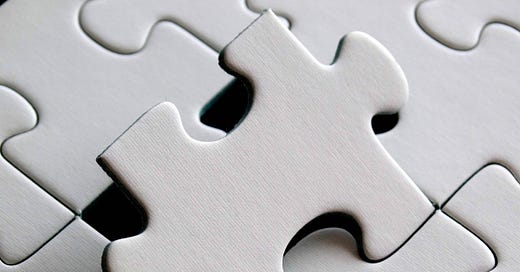I’m going to be doing something over the next two weeks that I haven’t done in over 6 years. You won’t find anything from me in your inbox the next two Fridays.
At first I had to double check and count on my fingers how long it’s been since I published my first post in February 2019.
It’s not because I’m burnt out. It’s not because I feel like I’ve written everything there is to know about personal finance.
It’s because I’m getting married a week from today and will be taking some time off after our wedding to soak it all in.
This post won’t be about the specifics of whether we will have joint or separate accounts or how two individual financial systems will become one. Though if you’re interested in a seemingly good method, here’s one I read recently.
The reality is there is no perfect system, just like there is no system for finding the person you will eventually marry.
It reminds me of this Morgan Housel quote:
The most important decisions in your life may be whether to marry, who to marry, and whether to have kids. But none of those topics are taught in school. They’re hardly even discussed. How could they be? They aren’t problems you can distill down to an equation, or even a broad principle.
People have different personalities, goals, experiences, and levels of chance and serendipity, all of which make universal truths hard to find and difficult to teach. No matter how smart the world becomes, the best answer will always be, “You’ve got to figure it out for yourself.”
A lot of things work like that. Some of the most important topics are the hardest to teach, and real world experience is the only school.
It’s crazy to think that the most important decision we will ever make in our lives has no real playbook. It can’t be plugged into a spreadsheet.
A lot of success in life can be measured. Your net worth. The value and square footage of your house. Your salary.
But there’s also so much of it that can’t possibly be measured. In Lawrence Yeo’s words, they’re metric-less.
Traditional success will get you on magazine covers, but metric-less success will get you on family albums. While society as a whole worships quantifiable success, what will ultimately matter most to the individual is everything that can’t be counted.
Here are some examples of metric-less success that are often overlooked, but impact our lives more than anything:
Marrying the right person
No decision will have more consequence in your life than whether you marry, and to whom you marry. There’s an enormous difference between living by yourself, and committing to living with a partner for the rest of your life. (And it’s not just your living situation either; it’s an intertwining of everything. As Kevin Kelly says, “You don’t marry a person, you marry a family.”) Nothing I say here can adequately describe how different those two scenarios are.
With that said, if you do decide to get married, then one of the greatest success stories of your life will result from it being the right person. If you marry well, then everything is better. You’ll have a person who loves and supports you through your triumphs and challenges, and you’ll learn how to do that for them as well. You’ll have a continuous reinforcement of your values, knowing that the person you’re with also shares them too.
Happiness is amplified through this shared understanding of what’s important, whereas sorrow is alleviated through your partner’s presence during the hardest of times.
Yeo writes about several other important metric-less success measures, but it’s no coincidence marriage was at the top of the list.
Chasing metrics which can be displayed on a scoreboard are important, but they’re more like completing the border of a puzzle where the majority of the pieces still need to be filled in with success measures that can’t be quantified.
I’ll be spending the next couple of weeks enjoying the most important puzzle piece.


